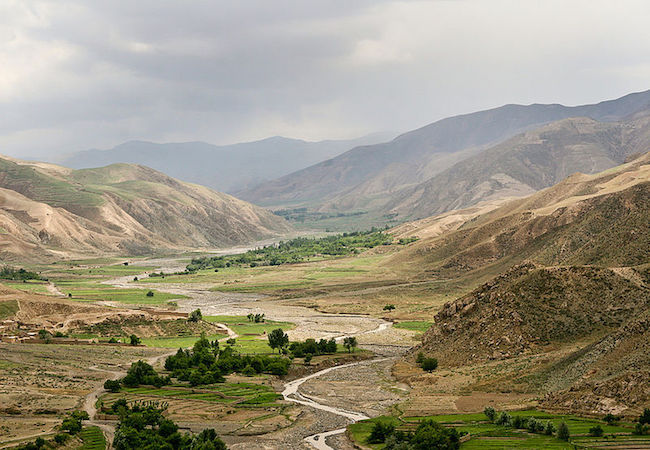
By Saima Ali
In international politics all nations have their own national interests, and there are no permanent allies and opponents. Neighboring states can be a benefit or a nuisance, depending on the capability to identify one’s long-term interests for long lasting peace on its borders.
The Jamaatul Ahrar, which is responsible for the recent attacks claiming over 100 innocent lives, is the largest and most lethal of Pakistani militant outfits currently operating from the Afghan border region. As the Additional Secretary from the Ministry of Foreign Affairs (MoFA) Tasnim Aslam raised the “grave concern [Pakistan has] about the continuing terrorist attacks on Pakistani soil by the terrorist outfit Jumaat-ul-Ahrar (JuA) [operating] from its sanctuaries inside Afghanistan,”
The network has pledged allegiance to the militant Islamic State group (IS) making the situation much more dangerous. The Pakistan Chief of Army rightly consulted and took into confidence the US Commander, General Nikelson in Afghanistan so he can play a big role in mitigating the danger lurking over the good neighborly relations of the two countries. Along with recent annoucment of Operation Radd-ul-Fasaad in the aftermath of a fresh resurgence in terror attacks in Pakistan.
Unsurprisingly cross border sanctuaries has been a foremost reason for the latest escalation of terrorist attacks both in Pakistan and Afghanistan. This perilous approach of ‘my enemy’s enemy is my friend’ has provided terrorists greater space to operate, thereby threatening the entire region. Cross-border attacks only fuel hostilities between the two countries, making it more difficult for them to join hands in fighting the common enemy. Along this these insurgencies, helped by cross-border sanctuaries and support networks, also weaken the host country’s sovereignty.
Pakistani officials say a second key Chaman border crossing into Afghanistan has been sealed, which was never sealed in history closing the trade supplies to the neighboring landlocked country. The border closure in Balochistan comes after a suicide bombing at the Lal Shahbaz Qalandar shrine that killed 88 people. The closure is to demand Kabul to act against militants who have sanctuaries in Afghanistan. Earlier, the border crossing at Torkham, which connects Pakistan to Afghanistan’s Nangarhar province, was also put down the lid.
The combination of Afghan and Pakistani grievances against one another has led to a relationship that is now in a shockingly poor state. Still, there are compelling reasons for both sides to move the bilateral relationship back towards cooperation. Pakistan, has had genuine concerns in relation to Afghanistan. As Mr. Ghani ‘s administration became increasingly hawkish on Pakistan, they deliberately steered closer to India — a growing closeness that the security establishment here saw as one of the reasons behind the renewed security troubles in Baluchistan. Moreover, with counter-insurgency operations in North Waziristan and other parts of Fata nearing their final stages, the problem of sanctuaries for anti-Pakistan militants in Afghanistan, particularly in the eastern region, has become a thorny issue.
Islamabad’s precise and lawful concern over the support for the Baloch nationalist insurgency by Indian intelligence in Afghanistan has at some extent exaggerated relations between the two countries. Cross-border sanctuaries are major hurdles in the fight against insurgency and terrorism. It is not only true for Pakistan, but also for Afghanistan fighting its Taliban insurgency. Hostile relations between the two neighboring nations have certainly made it much more difficult for them to deal with the terrorism.
One significant point is to highlight is that the real problem is the inability of people on either side of the border to accept that there are dilemmas with the faith that need to be addressed. Till such time as violence is seen as a legitimate means of securing Islamic ends, terrorism will continue to flourish with a religious sanction and legitimacy. If we have to defeat ISIS, we must acknowledge that pursuit of religious ends by use of violence is not justified.
Pakistan’s move to secure the borders and restrict illegal cross-border movement is reasonable, given the serious security situation. But its efforts cannot succeed with the current state of tension with Afghanistan. It is also important to build trust between the people of the two countries because their destinies are knotted and they must end this destructive war of sanctuaries. Pragmatically, Pakistan can’t afford to be opponents with both India and Afghanistan. Need of the hour is mutual respect, honesty in eradicating terror from the soil. At the same time, Afghanistan must also realize the importance of its relations with Pakistan, a neighbor that has been there to support it in the past, rather than demonstrate an obvious shift towards India. If there is no peace and stability in Afghanistan, there will be no peace and stability in Pakistan and vice-versa.




